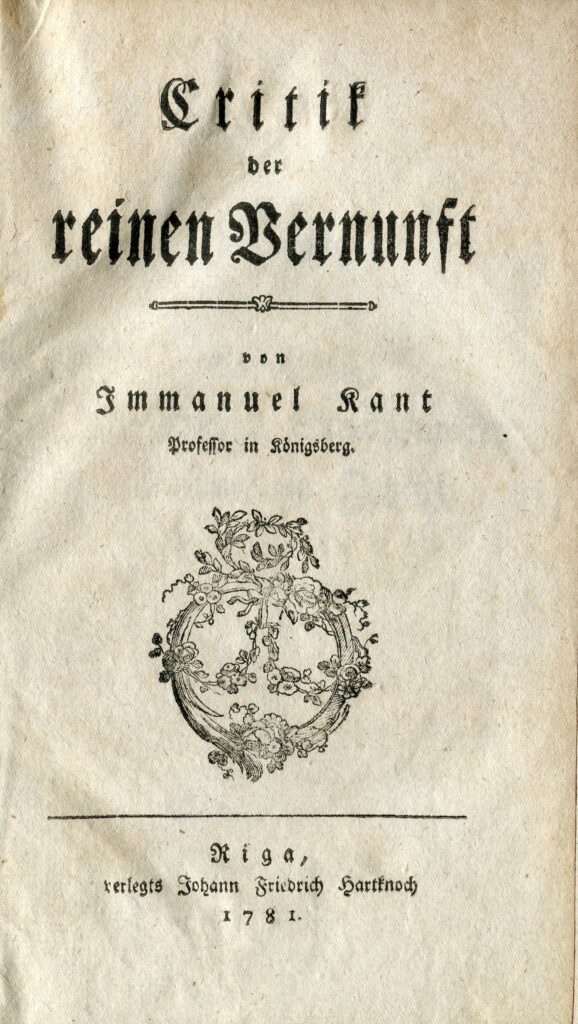8vo, [xxiv], 856 pp. (426-461 unpaginated as usual), contemporary half vellum over speckled boards, lightly rubbed and marked, edges red, 20th-century bookplate on pastedown, front free endpaper (top corner clipped) with two 19th-century ownership signatures and a small inscription dated 1957, a few pages with pencilled underlining and marginal reading marks, some light marginal browning and isolated spots, a very well-preserved copy.
First edition of Kant’s greatest work, the Critique of Pure Reason, widely considered the most influential book in philosophy since Aristotle. Warda 59; Adickes 46.
‘Kant does, I must say, make writers like Locke and Berkeley, and indeed Hume, excellent though they are, look to me rather like amateurs’ (Sir Geoffrey Warnock in Magee, The Great Philosophers, BBC Books, 1987, p. 187).
‘Kant’s great achievement was to conclude finally the lines on which philosophical speculation had proceeded in the eighteenth century, and to open up a new and more comprehensive system of dealing with the problems of philosophy. The influence of Kant is paramount in the critical method of modern philosophy. No other thinker has been able to hold with such firmness the balance between speculative and empirical ideas. His penetrating analysis of the elements involved in synthesis, and the subjective process by which these elements are realized in the individual consciousness, demonstrated the operation of “pure reason”; and the simplicity and cogency of his arguments achieved immediate fame. Kant’s achievements in other branches of philosophy were equally distinguished and fruitful. His methods dominated western philosophical thought throughout the nineteenth century, as they do today’ (Printing and the Mind of Man 226).

